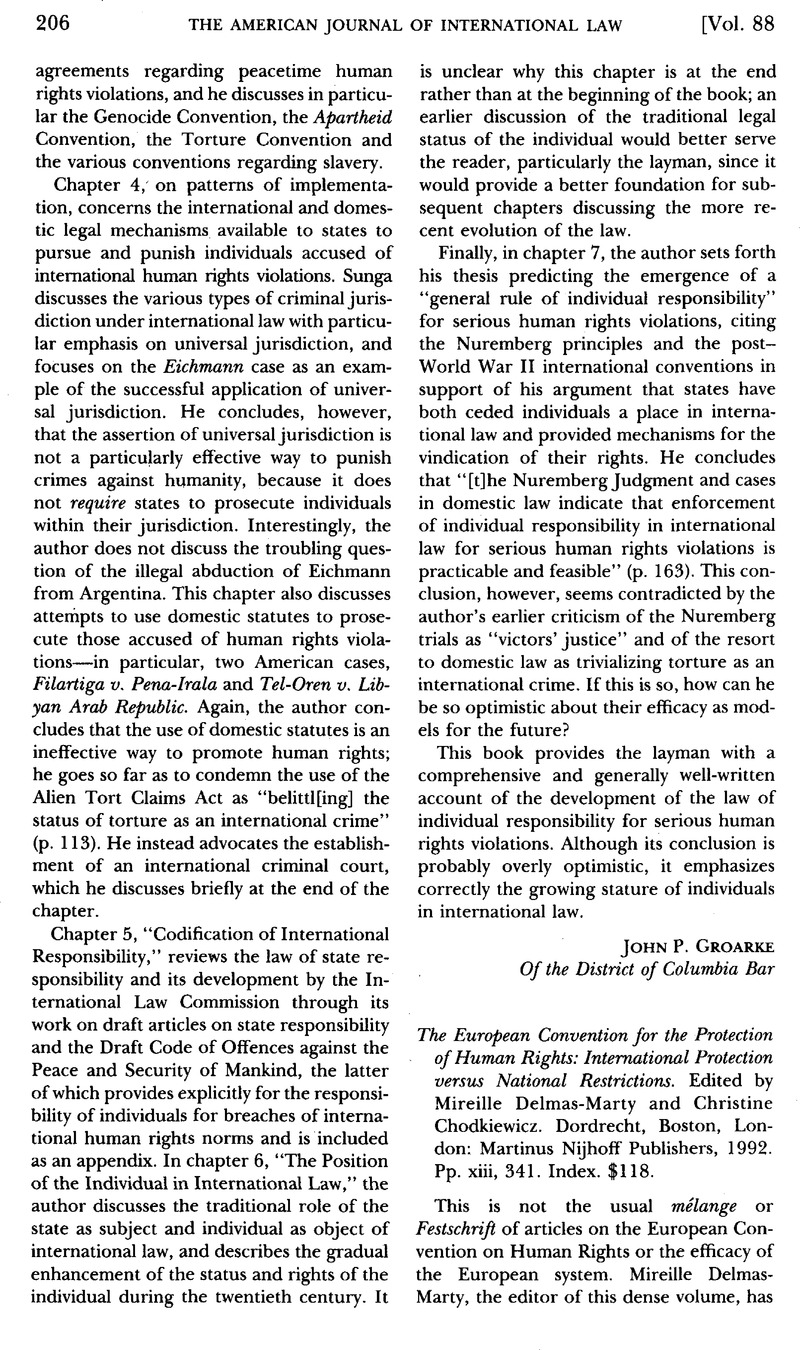No CrossRef data available.
Published online by Cambridge University Press: 27 February 2017

1 The second remark comes from Sir Gerald’s Some Reflections on the European Convention on Human Rights—and on Human Rights, in Völkerrecht als Rechtsordnung, Internationale Gerichtsbarkeit, Menschenrechte: Festschrift für Hermann Mosler 203 (1983). Given the hands-off policy of the Strasbourg human rights organs concerning the former Yugoslavia, Sir Gerald’s evaluation continues to be valid.
2 Professor Delmas-Marty points out that Article 2(7) of the UN Charter posits the notion that “a state of necessity” can prevail over law, in that this clause provides that the United Nations is not authorized “to intervene in matters which are essentially within the domestic jurisdiction of any State” unless measures are necessary to maintain or restore international peace and security (p. 8).
3 The European Commission, when examining the case of Greece under the Colonels, came to the conclusion that the Greek Colonels could not invoke Article 15 of the Convention because they were attempting to preserve themselves in power, not to preserve a democratic state. From this, it follows that no nondemocratic state may invoke a state of emergency to keep itself in power.